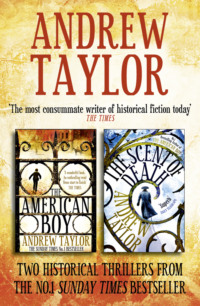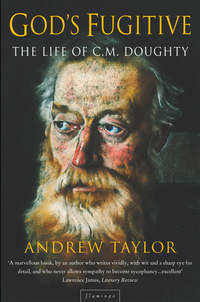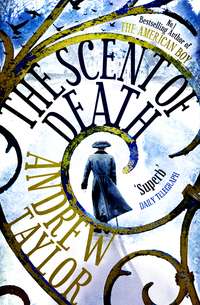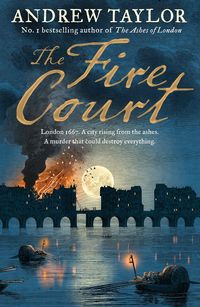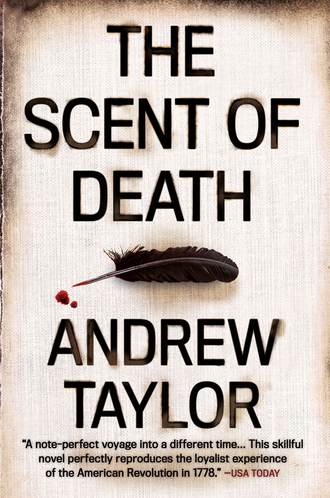
Полная версия
The Scent of Death
‘Though God knows when that will be,’ the official observed. ‘What with the rebels within and the French fleet without.’
‘We might as well have our dinner now,’ Townley said afterwards. ‘Nothing else can be done at present until this fuss and bother die down.’
As we were leaving, one of Mr Townley’s servants approached him with the news that the fever had claimed the life of his clerk in the early hours of the morning.
‘The poor fellow,’ Townley said. ‘Troubles never come singly, do they? It is this damned heat – it encourages every kind of pestilence. I must send something to his widow.’
We walked slowly towards the Common. Townley knew of a little inn in King George Street – nothing to look at from the outside, he told me, but the cook was from Milan and could do quite exceptional things with the meanest materials. I had already learned that Mr Townley thought a great deal about his meals and how they were prepared.
The excitement had ebbed away from the city. The broken glass had been swept up. The shops were as busy as ever.
‘It’s as if nothing had happened,’ I said.
‘That is the nature of war, sir,’ Townley said. ‘Terrors succeed terrors, but one cannot be apprehensive all the time. These exceptional alarms are much less of an inconvenience than something more mundane – like the death of my unfortunate clerk, for example. In life he was sadly imperfect, but in death he will be sorely missed. A mass of tedious business must inevitably fall on my own shoulders.’
‘I wonder.’ I hesitated, but only for a moment. ‘I think I told you, I met an American on the voyage. He worked as a lawyer’s clerk in London, and even knows something of the American Department. I believe he is in want of a position.’
A happy coincidence. Indeed I even congratulated myself on this turn of events – at a stroke, I thought, I might be able to oblige a new acquaintance while discharging a debt I owed to an older one.
‘Really?’ Mr Townley said. ‘How very interesting.’
Chapter Ten
After dinner, I returned to Warren Street. I found the ladies of the house in the drawing room. Mrs Arabella was at a table by the window with a copy of the Royal American Gazette spread out before her. Old Mrs Wintour was sitting in front of the empty fireplace.
I bowed in turn to them and wished them good afternoon. The old lady nodded graciously to me. But she said nothing and in a moment began to stare fixedly at the fireback as if trying to commit its sooty surface to memory.
Mrs Arabella beckoned me towards her. For the first time I saw her by daylight. Her face was oval, the complexion pale and unblemished, the lips full and the eyes brown. Her hair was partly concealed beneath her cap, but what I could see of it was lustrous and so dark as to be almost black.
‘Pray do not mention the explosion or yesterday’s fire, sir,’ she said in low voice. ‘Nor Mr Pickett’s death. Mrs Wintour finds subjects of that nature disagreeable.’
I nodded. Major Marryot was a bear in a red coat yet she clearly had him in thrall. Mr Townley spoke of her with a strange mixture of delicacy and wariness. Even Noak, as dry and dull as a ledger, knew her charms by reputation: ‘Once seen, never forgotten.’
Now, seeing Mrs Arabella in the glare of natural light from the window, I was frankly disappointed. She was well enough but her face lacked the classical proportions and high-bred refinement of Augusta’s; her figure would not have been considered à la mode in London, and her cotton dress seemed positively dowdy. The Americans, I thought, perhaps judged a lady’s personal attractions by lower standards than we did.
I had, on Mr Rampton’s advice, brought the Wintours some small presents from London – lace for the ladies, chosen by Augusta, a volume of sermons for the Judge and several pounds of tea for them all. When I presented the gifts, Mrs Wintour became quite animated.
‘I’m sure my son will enjoy the sermons too, when he comes home,’ she said in a voice like rustling paper. ‘His attention has always been turned towards spiritual matters – even as a little boy. I remember when we went to church: he listened so attentively to the sermons.’
Mrs Arabella wiped her fingers, inky from the fresh newsprint, on her handkerchief. She thanked me for the gifts but said she would not examine the lace until her hands were clean.
Mrs Wintour patted the sofa on which she sat. ‘Come and tell me how dear Mr Rampton does, Mr Savill. It must be nearly twenty years since we saw him. And you are married to his niece, Miss Augusta, I hear?’
‘Mr Rampton does very well, thank you, ma’am. Now he is under secretary of the American Department, Lord George Germain entrusts a great deal of business to him.’
‘And you, sir? My husband tells me that Mr Rampton speaks most highly of you.’
‘He is kindness itself, ma’am.’ This was not entirely true. Mr Rampton had opposed Augusta’s marriage to me, a mere junior clerk.
‘And do you have the consolation of children? You must pardon an old lady’s curiosity, Mr Savill.’
‘A daughter, ma’am – Elizabeth.’
‘How fortunate you are. I always wished for a daughter. When my son comes home, he and Bella will have one, possibly two. It will be as good as having them myself.’ She smiled at me. ‘It will be delightful, will it not? I dare say they will live at Mount George for much of the year – the air is healthier for children.’
The mention of Lizzie reminded me of the crying child I had heard – or thought I had heard – as I was going to sleep. I was about to ask whether there was a child in the house when the conversation shifted direction and the old lady began to ask me about which London clergymen were at present esteemed for their preaching.
‘Mama,’ Mrs Arabella said. ‘You should not plague Mr Savill with questions. I am sure he is weary.’
Mrs Wintour looked bewildered. ‘Ah – yes – do forgive me, Mr Savill, I run on, sometimes. My son tells me I must have been born chattering. Have you met my son John, sir?’
‘I’ve not had that pleasure, ma’am.’
‘You will meet him soon, I’m sure. He will make everything right when he comes home, and then I shall have my little granddaughters.’
‘You are tired, ma’am,’ said Mrs Arabella, rising from her chair. ‘Should you not rest for a while? I shall ring the bell for Miriam.’
Miriam came, and the old woman rose obediently and hobbled out of the room, clinging with two thin hands to the servant’s arm. The maid looked without hesitation to Mrs Arabella for her orders, though in this case few words passed between them, only a look of intelligence. This situation, I thought, had happened before, and more than once.
Mrs Arabella sat down again. ‘The Judge tells me that Mr Pickett has been found dead in Canvas Town. Was he murdered?’
That was plain-speaking indeed. ‘He is certainly dead, ma’am, and in all probability murdered.’ I tried not to think of the fly settling on the ragged wound in Pickett’s neck.
‘What was the motive?’
‘The affair is still a mystery. I apprehend that Major Marryot thinks Mr Pickett was a gambling man, and that may have had something to do with it. But I hope I do not distress you. I understand he was an acquaintance.’
‘I did not know him at all well, sir. Besides, we have grown used to hearing of horrors.’
‘I understand he has a sister. Do you know anything of her?’
‘No. I was not aware he had any family at all. I met him only once before and very briefly. I think he had had a few dealings with my father, but purely in the way of business.’
She said nothing further on the subject. A silence fell, and it was not altogether comfortable.
‘I – I understand your husband, madam, is expected home?’ I said. ‘Do you know when he will come?’
She stared at me with heavy-lidded eyes. ‘He has been missing since Saratoga. I thought you must know.’
‘Why yes – Mr Rampton said as much. But from what Mrs Wintour said, I inferred—’
‘Mrs Wintour desires his return so strongly that she believes he must come. I am not so sanguine, and nor is the Judge. But we do not contradict her.’
‘No, indeed.’
‘You would be doing us all a kindness if you would humour her in this as well.’
‘Of course.’
The Battle of Saratoga had been ten months ago. If there had been no news of Captain Wintour since then, the odds must be against his having survived.
‘You have heard nothing at all of him?’ I said after a moment.
‘No. We fear the worst. We hear so many reports of atrocities.’
Anger had brought colour to her face, and she looked almost beautiful. There was a fire about her when her passions were roused. I murmured a platitude about the horrors of war, particularly civil war.
‘Why does Lord George not advise the King to bring an end to this folly?’ she burst out.
‘Madam, I wish I knew, and then I should tell you. But Lord George does not open his mind to me.’
‘Of course not.’ Mrs Arabella’s eyelids closed, as though she wished to blot out the sight of me. ‘You are only a clerk.’
Chapter Eleven
The following day, Wednesday, Mr Townley arrived in Warren Street as I was in the act of leaving the house.
‘Mr Savill, sir,’ he cried from across the street. ‘This is well met. Have you heard the news?’
‘No, sir. What news?’
‘I thought the Major might have sent a man over to you. No matter – I am here instead. It appears that someone laid information late last night, and a man has been taken up for poor Mr Pickett’s murder.’
‘On what grounds?’
‘Oh, they have plenty of evidence – they have not charged the fellow yet, but I do not think there can be much doubt about it. We must not linger – he is to be interrogated at ten o’clock, and it wants but twenty minutes of that now. They are holding him at Van Cortlandt’s Sugar House at the corner of Trinity churchyard. And we are to meet your shipboard acquaintance there – what is his name? Note? Slope? Poke?’
‘Noak, sir.’ I had written to him yesterday afternoon and told him he might call on Mr Townley. ‘It is good of you to spare the time to see him.’
‘I have seen him already – he seems capable enough. And there’s something to be said for a man who knows a little of the wider world. I have decided to give him a trial for a day or two.’
‘That’s most obliging, sir – I hope he answers.’
‘We shall soon begin to discover whether he does or not. He can keep a record this morning.’
As we walked along, Townley asked if I was perfectly satisfied with my lodging; if not he would look about for somewhere else that might suit me.
I told him not to trouble himself for I liked it very well and added, ‘By the way, I had some conversation with the Wintour ladies yesterday evening.’
‘They are in good health, I hope? How did they strike you?’
‘I had not realized that Mrs Arabella’s husband is missing rather than dead.’
‘It is most unfortunate,’ Townley said. ‘No one has seen Captain Wintour since Saratoga, though there was a report of his being wounded. It leaves them all in a species of limbo – Mrs Arabella in particular. They do not know whether to mourn a son and husband or to pray for his happy return.’
‘Mrs Wintour seems in no doubt that it should be the latter.’
‘Alas, sir – as you may already have observed, Mrs Wintour’s sufferings have taken their toll on the poor lady’s rational faculties.’ Townley pointed with his stick. ‘We are nearly there – see? That is Van Cortlandt’s.’
The main sugar house was situated on a corner where two streets met. It was a big, brick-faced structure five storeys high and as ugly as a barn. An annex stood to one side. The establishment overlooked a yard enclosed by a wall. The building’s barred windows were deeply recessed and well above the height of a man. They accentuated rather than relieved the monolithic blankness of the façade.
‘This place is for prisoners of war,’ he murmured in my ear. ‘Marryot’s man shouldn’t be here at all, but the Provost is full.’
We stood aside to allow a file of soldiers to march down the road to the high wooden gates, which were guarded by two sentries. One leaf of the gates opened at the sentry’s double-knock and the file passed through to a yard. We followed them in.
Once inside, the sergeant of the guard told us to wait in the hall. Townley chafed at the delay.
‘At least it is cool and pleasant in here,’ I said.
‘The walls are immensely thick, sir. And there are few windows, as you see. The place was built to store sugar in good condition and safe from thieves. But it keeps people in as well as it keeps people out.’
A door at the back of the hall opened and Mr Noak came through.
Townley stared at him. ‘What? You? Here already?’
Noak bobbed his head to us, more like a bird pecking at a worm than a mark of respect. ‘Yes, sir. I made myself known to Major Marryot and showed him your letter. If you would care to step this way.’
As soon as we left the hall, the atmosphere changed. Sights and smells assaulted the senses. But I was first aware of the noise: a chaotic concerto of voices, groans, cries, and restless movements, all of them bouncing off the high, barrel-vaulted ceiling and setting off rolling echoes.
On the other side of the door to the hall was a table at which three soldiers were playing cards, apparently oblivious of what was going on around them. They glanced up incuriously and nodded us through.
Noak led us down a long, stone-flagged corridor lined with doors on either side. Along the centre of the passage was a drainage gulley apparently used as a sewer. Both Townley and I covered our noses with handkerchiefs.
A barred opening was set high in each door, and each opening framed a man’s face; his hands clung to the bars; and behind him was a multitude of other faces, packed together in one heaving, shouting, stinking mass of humanity.
‘For the love of Christ, your honours,’ a man called to us, ‘for the love of Christ, I can’t stop the bleeding.’
We walked faster and faster to a door at the far end. A guard let us into a lobby at the foot of a flight of stairs.
‘Dear God,’ I said. ‘It’s a perfect Bedlam in there. Worse than Bedlam – a foretaste of hell itself.’
‘They have only themselves to thank, sir,’ Townley said. ‘If they take up arms against their lawful government, they must expect to pay the price. The problem is that we have so many rebels to cope with. We are obliged to pack them in the best we can, wherever we find room.’
We mounted the stairs first to an anteroom guarded by a sentry and then to an inner apartment. A narrow window looked out across a neatly tended churchyard at the blackened ruins of Trinity Church.
Marryot was sitting at a long oak table, his lame leg resting on a footstool. He was leafing through a pile of papers. ‘Good morning, sirs,’ he said, looking up. ‘Pray sit down, now you are come at last. I was about to start without you.’ He nodded to Noak. ‘Tell the man outside to pass the word for the prisoner.’
We took chairs on either side of the Major. When he returned, Noak sat at the end nearer the window, with pen, ink and paper set out before him.
‘How fortunate that an informer came forward, sir,’ Townley said.
‘Fortunate?’ Marryot sniffed. ‘Fortune has nothing to do with it, sir. The army pays for its information. There are always men in want of gold.’
‘Can you be sure that the information is accurate, sir?’ I asked.
‘Little is certain in this world, sir, but the fellow we have in custody is certainly a rogue.’
We heard the stamp of marching feet outside. There was a knock on the door. At Marryot’s word, two soldiers entered with a small negro between them. He was cuffed at the wrists and swaying from side to side. When the soldiers came smartly to attention in front of the table, he collapsed on the floor in a huddle of limbs and filthy clothes.
‘Pull him up,’ Marryot ordered.
The soldiers hooked their arms under the prisoner’s shoulders and lifted him back to his feet.
‘Master, I didn’t do it, I swear on—’
‘Hold your tongue,’ Marryot roared. He turned to Noak. ‘You may write this down under today’s date, the fifth of August. And the place and time, of course. That this is the interrogation of a negro slave, a runaway, name of Virgil, property of the heirs of the late George Selden, esquire, of Queens County.’
The man whimpered. His cheeks glistened with tears. He wore filthy canvas breeches, loose at the knee, and a torn shirt. The feet were bare and the toes widely splayed. I wanted to look away but found I could not.
Townley took a silver toothpick from his waistcoat pocket and began to clean his teeth.
‘You are a vagabond, are you not?’ Marryot demanded. ‘Don’t speak unless I tell you – just nod.’
Virgil’s head drooped.
‘You absconded from your master when he was in Brooklyn the summer before last. And you’ve been living in Canvas Town with the rest of the rogues and knaves ever since.’ Marryot glanced down the table. ‘Have you noted that, Mr Noak?’
‘Master, for pity’s sake, I never saw—’
‘Hold your peace – I didn’t tell you to speak to me. You will have your chance later. And for God’s sake, stop snivelling or I’ll have you whipped.’
Noak scribbled.
‘Strike those last words out, Mr Noak,’ Marryot snapped. ‘They are not part of the record.’
Townley leaned back in his chair. ‘What evidence is against the man?’
‘All in good time, sir.’ Marryot put his elbows on the table and leaned towards the prisoner. ‘Tell me where you were last Sunday. Tell me what you did, what you saw.’
‘I was in Canvas Town, your honour. And I walked about the city looking for work. And then I went back to Canvas Town and fell asleep with nothing in my belly.’
‘Your belly looks plump enough to me,’ Townley observed, fanning himself with his handkerchief.
Marryot ignored the interruption. ‘That may be where you were but it’s not what you did. You’re a thief, a damned pickpocket. There were two empty purses in your bundle. And those shoes you had on your feet – well, they tell their own story, don’t they?’
‘Eh?’ Townley said. ‘What shoes? Nobody mentioned any shoes.’
‘Mr Noak,’ Marryot said. ‘Have the goodness to open the press and bring us what you find on the third shelf down.’
The press was a tall cupboard in an alcove by the empty fireplace. Noak took out a pair of black round-toed shoes with plain steel buckles on the flaps. He set them down on the table. The prisoner moaned softly at the sight of them. Marryot stretched out a hand and removed a small leather bag from one of the shoes.
‘So,’ he said. ‘When they brought you in last night, these shoes were on your feet.’
I picked up one of the shoes. The uppers were scuffed and creased. The sole needed reheeling. But the leather was good.
‘We had information that these shoes belonged to Mr Pickett,’ Marryot said. ‘I had them sent over to Beekman Street this morning. The kitchen boy who cleans the shoes is sure that these were Pickett’s.’
‘Information?’ I said. ‘From whom, sir?’
‘It don’t signify, sir. All that signifies is that the information is good. You’ll grant me that, I hope?’
Virgil lifted his head and, for the first time, looked directly at me.
‘You need not enter Mr Savill’s questions into the record either, Noak,’ Marryot said.
He untied the drawstring that fastened the bag and upended it. A heavy gold ring dropped on the palm of his hand.
‘It’s a seal ring,’ he said, holding it up between finger and thumb. ‘It has a stag incised on it. The woman at the house where he lodges, the Widow Muller, swears it’s Pickett’s. He wore it on his left hand and she noted it most particularly – he was behind with what he owed, and when he said he could not pay directly, she asked him why he did not turn his ring into guineas and be done with it.’
‘I never seen it, master, I swear, sir. Hope to die, God’s my—’
‘But the shoes?’ I interrupted. ‘You’ve seen those before?’
The prisoner glanced at me again. ‘Yes, sir.’
‘Of course he had,’ Marryot put in. ‘They were on his damned feet when they arrested him.’
‘And where did you get them, Virgil?’ I said.
‘I – I found them, your honour.’
‘On Mr Pickett’s body?’
‘Yes, sir. Poor gentleman was lying there, all dead. I thought he didn’t need them, so what’s the harm? Look, sir.’ He pointed down at his feet. ‘I lost a toe to frostbite last winter.’
‘He was dead because you’d killed him,’ Marryot said. ‘That’s how you knew, eh? So you helped yourself to his shoes and took the ring off his finger as well.’
‘No, sir, weren’t no ring when I found him.’
‘Then why was the ring in your bundle?’
Virgil shook his head violently. ‘Didn’t put it there, master, swear by—’
‘Hold your tongue, damn you.’ Marryot looked at the soldiers, who were staring blankly at the wall behind the table. ‘Take him away. Keep him in irons.’
No one spoke until the guards had led out the prisoner. Marryot stood up and went to the window.
‘Well, gentlemen,’ he said, still with his back to the room. ‘This need not detain us much longer, I think? The evidence points to the knave’s guilt.’
‘No rational man could entertain a doubt about it,’ Townley said, yawning. ‘If someone else had killed him, he would not have left the ring on Pickett’s finger. Shall Noak write you out a fair copy of the proceedings?’
‘I’d be obliged.’
Mr Noak dipped his head.
‘When you write it up, you should mention that Mr Savill of the American Department was present as an observer,’ Marryot went on, turning to face us. ‘But anything he said may be omitted.’
‘Now what?’ I said.
‘Why, sir, what do you think?’ Marryot said. ‘We wait and let the law take its course. Martial law, that is.’
Chapter Twelve
On the night of Wednesday, I heard the child crying again. In the morning, I mentioned it to Josiah, the older of the two manservants. It must be one of the neighbour’s infants in the slave quarters, he said – he would investigate and have the nuisance abated. I said he should not trouble himself; it did not matter in the least.
The administration had found me an apartment to use as an office in a house it leased at the eastern end of Broad Street, not far from the City Hall. It was a pokey chamber up two pairs of stairs. My first caller was already waiting for me – a clergyman from Connecticut whom the rebels had turned out of his parsonage and parish. His crime had been to preach a sermon whose text had been Luke Chapter 20, verse 25. ‘And he said unto them, Render therefore unto Caesar the things which be Caesar’s, and unto God the things which be God’s.’ Caesar in this case was intended to be taken as George III rather than Congress. The poor man had lost all he owned, including a farm he had inherited from an uncle.
Shortly before dinnertime, Townley swept into the room. ‘Why, sir,’ he said without any preamble, ‘I have just this moment heard from the Major and I clapped on my hat at once and said to myself I should give myself the pleasure of bringing the news to you directly.’
I rose to my feet. ‘What news? A battle?’
‘Nothing of that nature. It’s the negro – Virgil. He came before the court this morning and they found him guilty of Pickett’s murder. Marryot says the fellow is to hang tomorrow morning. Sir Henry Clinton has confirmed the sentence. They say the Commander-in-Chief wishes to make an example of this man to deter other slaves.’
‘Is justice always so swift in New York?’
Townley shrugged. ‘Military courts have this to be said for them, at least: they do not drag their heels. Besides, at this time especially, when the city is awash with rumours about rebel incendiarists within our lines, it does no harm to show that we have the city firmly in our control. Will you come, sir?’



